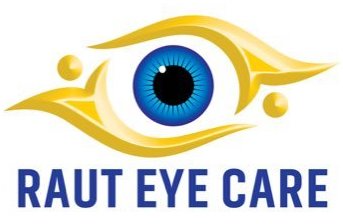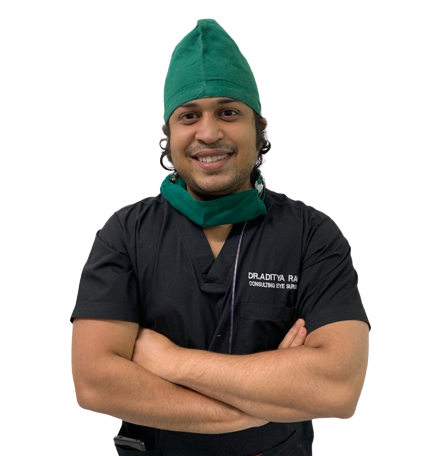Blogs for Lasik
List of articles for Lasik

PRK surgery
Introduction: In the realm of vision correction surgery, Photorefractive Keratectomy (PRK) stands as one of the pioneering procedures that has paved the way for contemporary laser eye surgeries. PRK addresses refractive errors like nearsightedness, farsightedness, and astigmatism by reshaping the cornea's curvature. Since its inception, PRK has evolved and continues to be a viable option for those seeking improved vision without the need for glasses or contact lenses. Understanding PRK Surgery: Photorefractive Keratectomy, commonly referred to as PRK, is a laser eye surgery that aims to correct refractive errors by reshaping the cornea – the transparent front part of the eye. Unlike its cousin LASIK (Laser-Assisted in Situ Keratomileusis), PRK does not involve creating a corneal flap. Instead, the surgeon removes the thin outer layer of the cornea, known as the epithelium, before using a laser to reshape the underlying corneal tissue. This reshaping allows light entering the eye to be properly focused onto the retina, resulting in clearer vision. The PRK Procedure: The PRK procedure typically involves the following steps: Preoperative Evaluation: A comprehensive eye examination is conducted to determine the patient's suitability for the surgery. Factors such as corneal thickness, refractive error, and overall eye health are assessed. Anesthetic Eye Drops: Prior to the surgery, the eye is numbed using anesthetic eye drops to ensure the patient's comfort during the procedure. Epithelial Removal: The surgeon gently removes the outer layer of the cornea (epithelium). This can be done using either a surgical instrument or with the help of a special brush. Laser Reshaping: Once the epithelium is removed, an excimer laser is used to reshape the cornea's curvature. The laser's precision ensures accurate and personalized correction of the refractive error. Protective Contact Lens: After the cornea is reshaped, a temporary soft contact lens is placed on the eye to facilitate healing and minimize discomfort. Healing and Recovery: Over the next few days, the epithelium regenerates and the eye begins to heal. Patients may experience mild discomfort, light sensitivity, and blurred vision during this period. Follow-up Care: Regular postoperative appointments are scheduled to monitor the healing process and ensure that the desired visual outcome is achieved. Advantages of PRK: Suitability: PRK is a suitable option for individuals with thinner corneas or those who might not be eligible for LASIK due to other factors. Reduced Risk of Complications: Since PRK does not involve creating a corneal flap, there is a reduced risk of flap-related complications that can occur with LASIK. Stability: PRK provides stable long-term results and is less likely to induce dry eye symptoms, making it a better option for some patients in the long run. Considerations and Recovery: Recovery Time: PRK typically has a slightly longer recovery period compared to LASIK, as the epithelium takes time to regenerate. Full visual acuity can take several weeks to achieve. Discomfort: Patients may experience mild discomfort, sensitivity to light, and fluctuating vision during the initial days of recovery. Pain medication and protective sunglasses can help manage these symptoms. Visual Results: The final visual outcome may take some time to stabilize, but PRK can provide clear and improved vision once the healing process is complete. Conclusion: Photorefractive Keratectomy (PRK) has played a significant role in revolutionizing vision correction surgery. By reshaping the cornea's curvature, PRK offers patients a chance to enjoy life without the limitations of glasses or contact lenses. While it may require a slightly longer recovery period compared to LASIK, the benefits of reduced risk and long-term stability make PRK a compelling option for those seeking clearer vision and an improved quality of life. If you're considering PRK, consult with an experienced eye surgeon to determine if this procedure is the right choice for you.

Glasses getting in the way of your amusement park visit - Get Contoura LASIK In Pune : Patient Review
Did you want to visit an amusement park and had to take off your glasses?
Maybe you wanted a ride in the water park, but they said you had to remove your glasses, and then you couldn't see anything?
Glasses make it hard to enjoy life fully. In today's day and age being free, and active is a must.
Here is what our patient had to say about her experience with glasses and how Contoura Lasik changed her life permanently.
This patient review is the ground reality about changing your life by getting rid of your glasses forever.
Read our page on LASIK Surgery in Pune to knore more.

Why Femtosecond contoura lasik is better than smile
Lasik is a laser basedprocedure that modifies the shape of the cornea.In lasik flap is creared and laser is applied to cornea to reshape it.The flap is then replaced over the treated cornea.In bladeless lasik the flap is created using femto second laser.Both flap creation and reshaping cornea is done by laser.No blade is used for creating flap..


Eye procedures
At our esteemed eye clinic, we understand the significance of clear vision and its impact on our daily lives. With advancements in medical technology, a wide array of eye procedures have emerged, catering to diverse visual impairments and conditions. Our clinic takes pride in offering a comprehensive range of eye procedures designed to improve vision, restore ocular health, and ultimately enhance the quality of life for our patients. In this article, we will delve into the world of eye procedures, exploring their benefits, applications, and the transformative potential they hold.
Cataract Surgery:
One of the most commonly performed eye procedures at our clinic is cataract surgery. Cataracts cause clouding of the natural lens, resulting in blurry vision and reduced clarity. Our skilled ophthalmologists employ state-of-the-art techniques to remove the cloudy lens and replace it with an artificial intraocular lens (IOL). This outpatient procedure has revolutionised vision correction, enabling patients to regain clear vision and visual acuity.
LASIK (Laser-Assisted in Situ Keratomileusis):
LASIK is a popular refractive surgical procedure that corrects common vision problems such as myopia (nearsightedness), hyperopia (farsightedness), and astigmatism. By reshaping the cornea using a precision laser, LASIK enables light to focus properly onto the retina, resulting in improved vision. This bladeless and painless procedure has transformed the lives of millions, eliminating the need for glasses or contact lenses.
Glaucoma Surgery:
Glaucoma, often referred to as the "silent thief of sight," damages the optic nerve and can lead to irreversible vision loss if left untreated. Our clinic offers various glaucoma procedures, including trabeculectomy, tube shunts, and minimally invasive glaucoma surgery (MIGS). These procedures aim to reduce intraocular pressure and preserve optic nerve function, preventing further vision deterioration.
Corneal Transplant:
For individuals with corneal diseases or corneal scarring, a corneal transplant may be the most viable solution. Our eye clinic specializes in performing full-thickness and partial-thickness corneal transplants, restoring clarity to the front part of the eye and improving overall vision. These procedures can be life-changing, providing patients with the ability to see clearly once again.
Retinal Detachment Surgery:
Retinal detachment is a serious condition that requires prompt surgical intervention. At our clinic, we offer various retinal detachment surgeries, including pneumatic retinopexy, scleral buckling, and vitrectomy. These procedures aim to reattach the detached retina, preventing vision loss and preserving ocular function.
Eye Muscle Surgery:
Eye muscle surgery corrects misalignments of the eyes, such as strabismus (crossed eyes) or nystagmus (involuntary eye movement). Our skilled surgeons perform precise adjustments to the eye muscles, improving eye alignment and enhancing binocular vision. This procedure can significantly enhance the quality of life for both children and adults affected by these conditions.
Conclusion:
The field of ophthalmology has witnessed remarkable advancements, providing individuals with a plethora of eye procedures to address various visual impairments and ocular conditions. At our eye clinic, we offer a wide range of these transformative procedures, ranging from cataract surgery and LASIK to corneal transplants and retinal detachment surgeries. Through these interventions, we strive to improve vision, restore ocular health, and empower individuals to lead fulfilling lives free from the shackles of visual limitations. If you are seeking professional eye care and innovative eye procedures, our clinic stands ready to guide you on your

The Benefits of LASIK Surgery: Why It's Worth Considering
LASIK surgery, which stands for Laser-Assisted In Situ Keratomileusis, is a popular refractive eye surgery that can address common visual disorders. A laser is used to shape the cornea during the treatment, enabling light to correctly focus on the retina and improving vision. Wavefront mapping and femtosecond lasers, for example, are examples of cutting-edge technologies that ensure precise and individualised care. In order to secure the best possible outcomes from LASIK surgery, it is crucial to emphasize the importance of a skilled surgeon. Their knowledge and proficiency contribute in the procedure's success and safety. Having a thorough understanding of LASIK surgery can reduce fears and support people in selecting the best vision correction procedure for them.

Understanding the Different Types of LASIK Procedures
For those considering laser eye surgery, it is essential to understand the various LASIK techniques. Every method has its own distinct features, advantages, and potential concerns. Patients can choose wisely about their route towards vision correction by becoming knowledgeable about the numerous choices accessible. Individuals can balance the benefits and acceptability of each operation depending on their unique needs and expectations by being aware of the distinctions between regular LASIK, bladeless LASIK, PRK, and SMILE. In the end, having talks with eye care specialists allows patients to have more successful and personalised LASIK procedures. Let us understand the different types of LASIK procedures

Is retina laser painful?
Yes Retina laser can be painful at times but not always. Since there are different types of lasers required to treat different retinal conditions.
Usually the level of pain depends on the grade of burn and the location of the lesion lasered. The grade of burn is decided by the treating doctor to acheive complete treatment. Barrage lasers tend to be more painful compared to laser for diabetic retinopathy as the area treated in barrage laser is usually the peripheral retina which is thinner than the rest of retina. Some lasers like focal/grid are absolutely pain free.
Usually the pain if there is any lasts during or few minutes after the procedure and is easily treatable with simple eye drops and if required pain killer tablets will be prescribed by the treating physician. Sometimes you might be advised to take pain killers before the procedure if pain is anticipated during the procedure by the treating doctor.
Now the cost of any retina laser depends on the number of sitting required and is again decided by the treating physician. Usually it ranges from 1 to 3 sittings.
The per sitting cost of retina laser ranges from 4000 rs to 6000 rs depending on the type of laser. For barrage laser the cost is around 5800rs and for diabetic laser cost is 5500 per sitting per eye. For a focal laser the cost is 4000rs.


